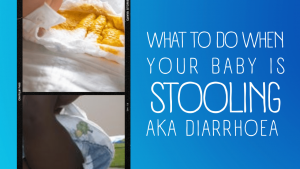Measles is a highly infectious viral infection. Despite the availability of a safe and efficient vaccine to decrease the severity of the sickness, it remains a leading cause of mortality among young children worldwide. It is a highly infectious sickness caused by a virus that multiplies in an infected child’s nose and throat.
When a person with measles coughs, sneezes, or speaks, contaminated droplets shoot into the air, where they can be inhaled by others. Infected droplets can also settle on a surface and stay active and infectious for several hours. Babies can then catch the virus by wiping their eyes or putting their fingers in their mouths or noses after touching an infected surface.
SIGNS AND SYMPTOMS OF MEASLES
• Fever
• Dry cough
• Runny nose
• Sore throat
• Inflamed eyes (red eyes)
• Tiny white spots with bluish-white centres on a red backdrop on the inner lining of the cheek within the mouth
• A rash on the skin that is usually itchy.
Babies who have not received the measles vaccination are considerably more likely to contract the disease
BABIES THAT ARE AT RISK OF HAVING MEASLES
1) Unvaccinated Babies: Babies who have not received the measles vaccination are considerably more likely to contract the disease.
2) International Travel: If you take your kid to a developing country where measles is more frequent, they are at a higher risk of contracting the disease.
3) A Vitamin A Deficient Baby: Babies who do not get enough vitamin A in their diet (carrots are high in vitamin A) are more prone to have severe symptoms and problems.
IF NOT PROPERLY TREATED IN THE HOSPITAL MEASLES CAN LEAD TO:
• Ear infection.
• Measles may lead to inflammation of the baby’s voice box (larynx) or inflammation of the inner walls that line the main air passageways of your lungs (bronchial tubes).
• Pneumonia is a common complication of measles.
• Babies with compromised immune systems can develop an especially dangerous variety of pneumonia that is sometimes fatal.
• Blindness. One of the leading causes of blindness in children
HOW TO TREAT MEASLES
Measles has no particular therapy, but it must be properly diagnosed and treated at a hospital. Virus infections, unlike bacterial infections, are not susceptible to antibiotics. The virus and its symptoms usually go away in two or three weeks. For those who have been exposed to the VIRUS, there are various treatments accessible. These can assist to prevent or decrease the severity of an illness.
1) Prevention: Proper measles vaccination at 9 and 15 months of age, or MMR (Measles Mumps Rubella at 15 months).
2) If you are already infected, use paracetamol to lower your temperature.
3) Rest at home: Babies should avoid going to school to improve their immune systems.
4) Provide lots of fluids
5) Use a humidifier to help with coughing and sore throat.
6) Administer vitamin A supplements or vaccinations. Vaccines are administered in a hospital or health centre. To avoid blindness, you’ll need three (3) dosages during illness time.
7) Immune system boosting vitamin supplements
8) Use calamine lotion to relieve itching in conjunction with prescription anti-allergy medicine.
DO NOT SELF-MEDICATE OR TREAT IN THE PHARMACY.
DON’T GIVE YOUR BABY “7 KEYS,” GBOMORO, OR ANY FUNNY HERBAL MEDICINE IF HE HAS MEASLES.
IT IS TREATABLE AND CAN BE TREATED PROPERLY IN THE HOSPITAL.




